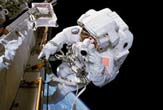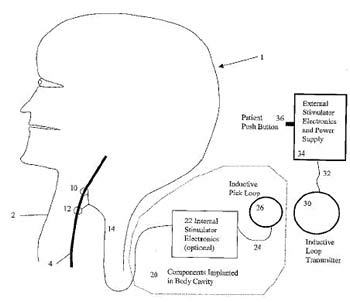Implant Relieves Nausea Without Drugs

Get the world’s most fascinating discoveries delivered straight to your inbox.
You are now subscribed
Your newsletter sign-up was successful
Want to add more newsletters?

Delivered Daily
Daily Newsletter
Sign up for the latest discoveries, groundbreaking research and fascinating breakthroughs that impact you and the wider world direct to your inbox.

Once a week
Life's Little Mysteries
Feed your curiosity with an exclusive mystery every week, solved with science and delivered direct to your inbox before it's seen anywhere else.

Once a week
How It Works
Sign up to our free science & technology newsletter for your weekly fix of fascinating articles, quick quizzes, amazing images, and more

Delivered daily
Space.com Newsletter
Breaking space news, the latest updates on rocket launches, skywatching events and more!

Once a month
Watch This Space
Sign up to our monthly entertainment newsletter to keep up with all our coverage of the latest sci-fi and space movies, tv shows, games and books.

Once a week
Night Sky This Week
Discover this week's must-see night sky events, moon phases, and stunning astrophotos. Sign up for our skywatching newsletter and explore the universe with us!
Join the club
Get full access to premium articles, exclusive features and a growing list of member rewards.
Johns Hopkins University has just patented a new device for relief from nausea. In the patent, Dr. Ronald Lesser, MD and Dr. Robert Webber, PhD propose a system that could help pregnant women cope with nausea without using drugs that could endanger the health of the fetus, among other uses.
A small metal rod wrapped in a metallic coil is inserted beneath the skin on a patient's neck, close to the vagus nerve.
When current is run through a similar coil held outside the neck, the induced current in the inserted rod should stimulate the vagus nerve and disrupt the sense of nausea felt by a patient.
Johns Hopkins says that the strength and frequency of pulses must be set by a physician to suit each individual patient. Once adjusted, patients should be able to control their own symptoms with a hand-held device. Although the vagus nerve affects the heart, lungs and stomach, JHU says stimulation should not affect vital functions, such as cardiac rhythm.
SF writer Lois McMaster Bujold wrote about a similar idea in her 2002 novel Diplomatic Immunity for use by space travelers who frankly had no stomach for free fall-induced nasea:
Roic unbent from the port, looking especially stoic, faint vertical lines of worry between his eyebrows. Miles asked, "Has everyone had their antinausea pills?" Roic nodded earnestly. Ekaterin said, "Have you had yours?" "Oh, yes." He glanced down his plain gray civilian tunic and trousers. "I used to have this nifty bio-chip on my vagus nerve that kept me from losing my lunch in free fall, but it got blown out with the rest of my guts in that unpleasant encounter with the needle-grenade. I should get it replaced one of these days..."
If you are interested in science-fictional medical advances that are starting to appear at hospitals near you, see Bionic Arm Uses Neuro-Engineering, Brain 'Pacemaker' for Depression Sufferers and Southampton 'Remedi Hand' Beats Hollywood Thanks to Delster for pointing out this story; read a bit more at NewScientist.
(This Science Fiction in the News story used with permission from Technovelgy.com - where science meets fiction.)
Get the world’s most fascinating discoveries delivered straight to your inbox.
 Live Science Plus
Live Science Plus











